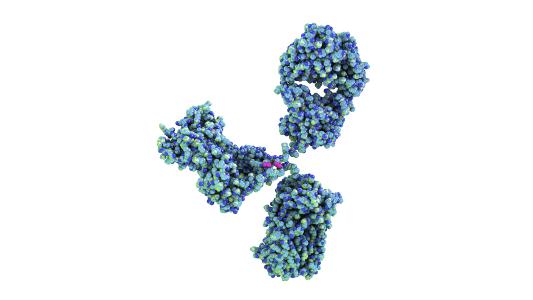In what they have dubbed a first-of-its-kind study, researchers at the U.K.’s University of Southampton and NIHR Southampton Biomedical Research Centre have found that introducing “friendly” bacteria into the nose can protect against meningitis.
The bacterial form of meningitis can be caused by Neisseria meningitidis, a nasty bug that resembles a cartoon butt. But when the bug’s close relative, Neisseria lactamica, is present in the nose, the benign bacteria can outcompete its virulent kin — potentially preventing meningitis.
“This work has shown that it is possible to protect people from severe diseases by using nose drops containing genetically modified friendly bacteria,” Robert Read, director of the NIHR Southampton Biomedical Research Centre, said in a release.
“We think this is likely to be a very successful and popular way of protecting people against a range of diseases in the future.”
What is meningitis? Meningitis is a potentially lethal disease characterized by inflammation of the protective membranes of the brain and spinal cord — two pretty important parts of your body. Any number of pathogens can cause meningitis, including viruses, fungi, and bacteria — but N. meningitidis is the primary culprit.
The bacteria causes a variety of diseases, known as meningococcal diseases, including meningitis. According to the CDC, meningococcal meningitis symptoms can include sudden fever, headache, stiffness in the neck, sensitivity to light, nausea/vomiting, and confusion.
While the disease is treatable, time is of the essence; left untreated, meningococcal meningitis can be lethal in 50% of cases, and death can come in as little as four hours.
Bacteria vs. bacteria: Not to freak you out, but N. meningitidis miiiiight be living in the back of your nose or throat right this very second. According to the researchers, about 10% of adults naturally harbor the bacteria, without any adverse effects.
But N. meningitidis is just one of many microbes that can make its home on or inside you, including its nicer relative N. lactamica. This fellow doesn’t cause any trouble, however, and in fact can be beneficial: since it occupies the same places its meningitis-causing kin does, it can essentially block the other bacterium out.
Meningitis is treatable, but time is of the essence; it can be lethal in half of cases, and death can come in as little as four hours.
In a previous study, the researchers found that giving people nose drops containing N. lactamica protected 60% of patients from N. meningitidis infection.
In their new study, published in Science Translational Medicine, they looked to enhance that blocking ability. The researchers genetically modified N. lactamica and gave it the same trick its brutal cousin has: a special sticky protein that helps the bacteria adhere to the cells lining the nose.
So equipped, the harmless bacteria induced a stronger immune system response and stayed in the nose longer. The researchers reported that human volunteers carried the beneficial bacteria for at least 28 days, and 86% still carried it after 90 days, with no adverse effects.
This new method harnesses both N. lactamica’s natural ability to outcompete its relative and sparks the immune system as well.
“The controlled infection was safe, and there was no transmission to adult bedroom sharers during the 90-day period,” the researchers reported.
Beyond meningitis: The researchers believe that their bacteria-based vaccine has potential beyond preventing just bacterial meningitis.
“[T]he underlying platform technology has broader applications,” said Jay Laver, senior research fellow in microbiology at the University of Southampton.
“We think this is likely to be a very successful and popular way of protecting people against a range of diseases in the future.”
Robert Read
The bacteria could be modified to express any number of antigens, from any number of pathogens, and then stick around to build up immunity in the nose and throat — called mucosal immunity.
“This work has shown that it is possible to protect people from severe diseases by using nose drops containing genetically modified friendly bacteria,” Read said.
“We think this is likely to be a very successful and popular way of protecting people against a range of diseases in the future.”
We’d love to hear from you! If you have a comment about this article or if you have a tip for a future Freethink story, please email us at tips@freethink.com.






